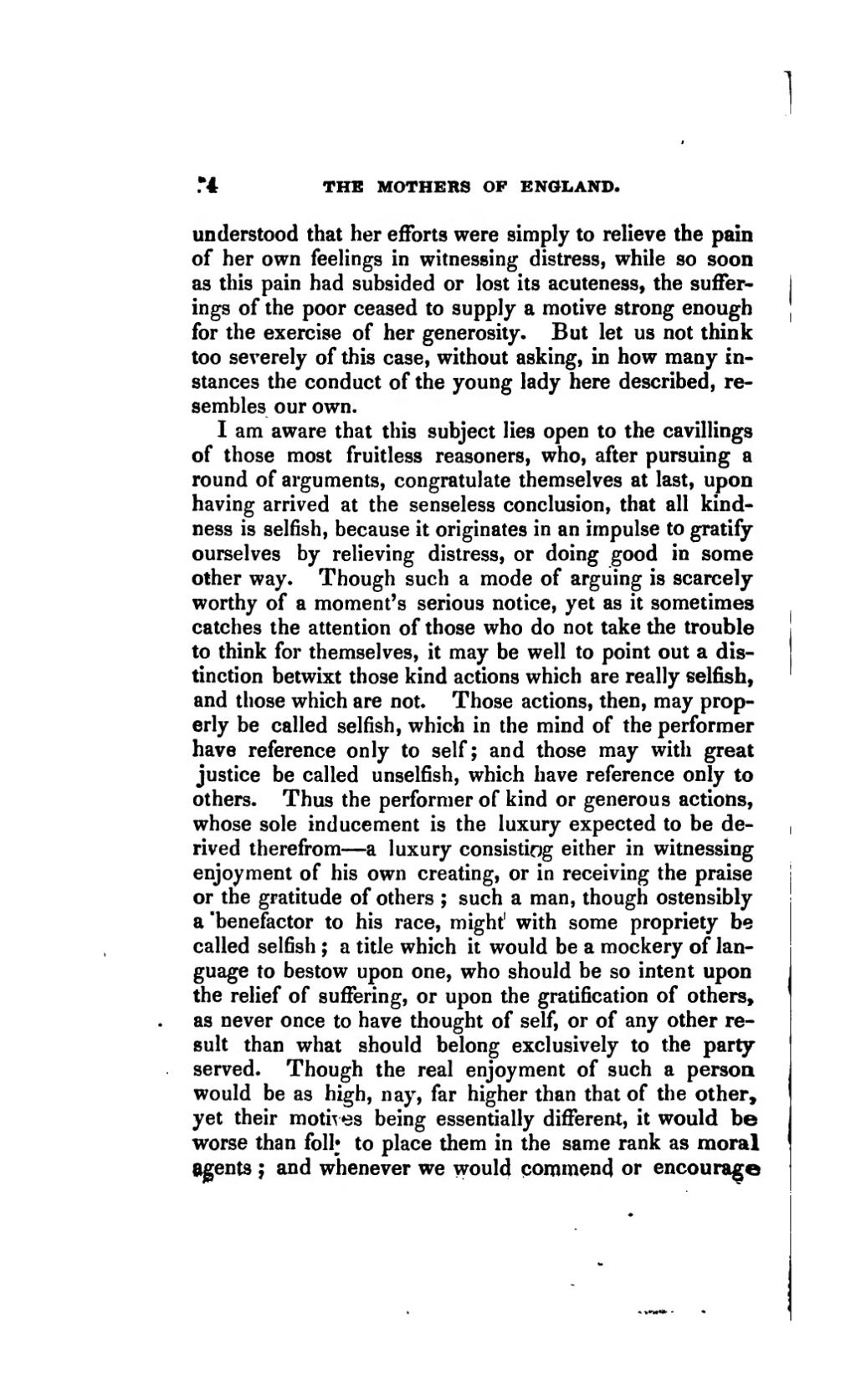understood that her efforts were simply to relieve the pain of her own feelings in witnessing distress, while so soon as this pain had subsided or lost its acuteness, the sufferings of the poor ceased to supply a motive strong enough for the exercise of her generosity. But let us not think too severely of this case, without asking, in how many instances the conduct of the young lady here described, resembles our own.
I am aware that this subject lies open to the cavillings of those most fruitless reasoners, who, after pursuing a round of arguments, congratulate themselves at last, upon having arrived at the senseless conclusion, that all kindness is selfish, because it originates in an impulse to gratify ourselves by relieving distress, or doing good in some other way. Though such a mode of arguing is scarcely worthy of a moment's serious notice, yet as it sometimes catches the attention of those who do not take the trouble to think for themselves, it may be well to point out a distinction betwixt those kind actions which are really selfish, and those which are not. Those actions, then, may properly be called selfish, which in the mind of the performer have reference only to self; and those may with great justice be called unselfish, which have reference only to others. Thus the performer of kind or generous actions, whose sole inducement is the luxury expected to be derived therefrom—a luxury consisting either in witnessing enjoyment of his own creating, or in receiving the praise or the gratitude of others; such a man, though ostensibly a 'benefactor to his race, might' with some propriety be called selfish; a title which it would be a mockery of language to bestow upon one, who should be so intent upon the relief of suffering, or upon the gratification of others, as never once to have thought of self, or of any other result than what should belong exclusively to the party served. Though the real enjoyment of such a person would be as high, nay, far higher than that of the other, yet their motives being essentially different, it would be worse than folly to place them in the same rank as moral agents; and whenever we would commend or encourage
